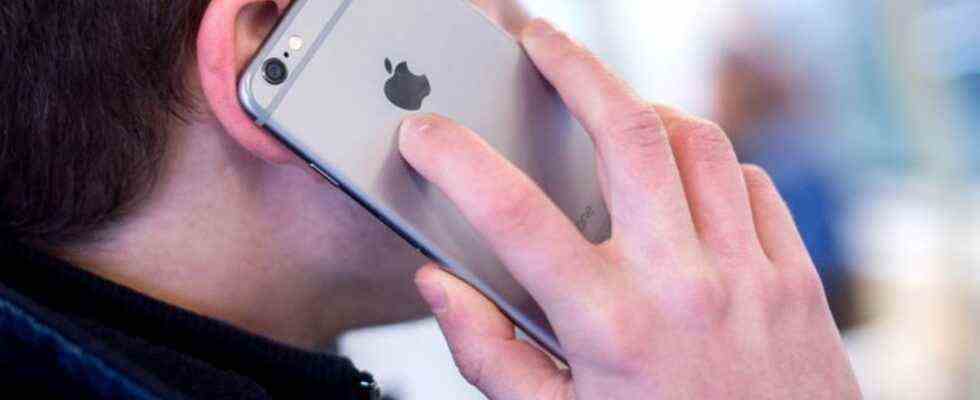telecommunications
Study: Users are increasingly changing their smartphones later
Consumers are replacing their smartphones with new ones later and later. Photo: Hauke-Christian Dittrich/dpa
© dpa-infocom GmbH
The next top smartphone after two years at the latest – that was once. Users are more and more reluctant to buy new products. The new 5G standard doesn’t change anything – for the time being.
According to a study, the rapid switch from one mobile phone to the next is passé for many consumers. According to a study by the credit insurer Euler Hermes, this could cost smartphone providers hundreds of billions in sales over the next few years.
Above all, smaller providers are at risk instead of the heavyweights such as the currently three largest manufacturers Apple, Samsung and Xiaomi.
“Consumers have become more sustainable in recent years and are now holding on to their smartphones much longer,” said Milo Bogaerts, head of Germany at the Allianz subsidiary. “Europeans currently exchange their devices after around 40 months on average – that’s about a quarter longer than in 2016.”
Faster overseas exchange
In the USA, consumers are currently replacing their smartphones after around 24 months – but there, too, the useful life of the devices has increased by 30 percent since 2016.
“The replacement cycles will continue to lengthen in the coming years. This will not remain without consequences for the industry » predicts Euler Hermes industry analyst Aurélien Duthoit. “By 2025, this will put cumulative global sales totaling $134 billion at risk.”
According to Duthoit, the relatively new and still not very widespread 5G mobile standard should not be suitable as a “booster for new record hunts in the smartphone industry”, at least for the time being. “So far, the absolute “killer function” has been missing from 5G devices,” according to the analyst. “That could explain the lack of consumer enthusiasm for 5G devices, along with sometimes disappointing mobile data speeds compared to theoretical capacities.” Conversely, this means: “Whoever brings this killer function to the market first will catapult themselves to the front in one fell swoop.”

